 If you’re among the estimated one in three California residents with a criminal record, you may be worried about how it will affect your job search. After all, it’s not uncommon for employers to ask about criminal history on job applications, and if you have a criminal record, it could end the process before it’s even begun. The rules surrounding background checks can be hard to understand. This is especially true in California, where background checks require special considerations.
If you’re among the estimated one in three California residents with a criminal record, you may be worried about how it will affect your job search. After all, it’s not uncommon for employers to ask about criminal history on job applications, and if you have a criminal record, it could end the process before it’s even begun. The rules surrounding background checks can be hard to understand. This is especially true in California, where background checks require special considerations.
If you have a criminal record and are worried about whether it might show up during your California criminal background check, you’re not alone. While criminal background checks can reveal a wide variety of information about your history, job seekers with criminal history still have substantial protections under California law. Here’s what you need to know.
What Is a Background Check?
A criminal background check is a process a company uses to verify your history. This includes information about your criminal history, education, employment, and other activities from your past. This can include negative information on a credit report, worker’s compensation records, and DMV driving records. When it comes to your criminal history, a criminal background check will generally reveal if you’ve been convicted of a misdemeanor or felony, though there are several exceptions.
It’s unlawful for an employer or company to gain access to information regarding an arrest that didn’t lead to a conviction, a conviction dated more than seven years from the date of the check, a conviction for which the person checked received a pardon, an arrest leading to the completion of a successful diversion program, expunged and sealed convictions, and certain marijuana offenses.
Regarding your criminal history, it’s illegal for an employer or company to access details about:
- An arrest that didn’t result in a conviction (unless the arrest is currently pending)
- Any conviction that occurred over seven years before the date of the criminal background check
- A conviction that has been pardoned
- An arrest that was resolved through successful completion of a diversion program
- Convictions that have been expunged or sealed
- Specific offenses related to marijuana
Understanding the Exceptions to Background Checks in California
While background checks are legal in California, California law imposes several restrictions and obligations on employers when performing them. Some of these are found in:
- California’s Ban-The-Box Law: Officially known as the “California Fair Chance Act,” this law bans employers from asking about your criminal history before making a job offer. Even after making an offer and realizing your criminal background, the employer can’t deny you because of a conviction without making an individualized assessment.
- The Los Angeles and San Francisco Fair Chance Ordinances: This ordinance, which was in place before ban-the-box, offers similar protections: if an employer decides to deny employment based upon your criminal history, you have a chance to provide evidence of why employment is still justified.
- The Fair Credit Reporting Act: This law states that employers are required to gain your written consent before they conduct a criminal background check. Likewise, they must provide notice to the applicant if they deny employment because of this information.
- The California Information Privacy Act: This law states that if an employer is doing a criminal background check, they must give you the option to view this check.
- Anti-Discrimination Laws: State and federal laws prohibit California employers from discriminating against applicants, including those with a criminal record.
Likewise, it’s important to note that negative information may be cleared from a criminal background check through expungement, Certificates of Rehabilitation, Governor’s pardons, sealing juvenile records, and petitions for a finding of factual innocence.
How Far Do California Criminal Background Check Go?
In California, the reach of employment background checks extends back to the previous seven years.
The California 7-Year Rule Explained
Once a job applicant receives a conditional offer of employment in California, the employer is permitted to conduct a criminal background check covering a period of up to seven years, subject to certain exceptions.
As a result, employers are not allowed to base hiring decisions on convictions that are more than seven years old when making hiring decisions.
Sources for Background Checks
A comprehensive criminal background check in California may draw upon a variety of sources, including both criminal justice and non-criminal justice agencies. Information gathered can include:
- Criminal and arrest records, along with court records
- Credit histories from consumer credit agencies
- Workers’ compensation claims
- Personal references
- Educational backgrounds
- History of check writing
- Rental history
- Records from the Department of Motor Vehicles
- Immigration status
- Insurance claim histories
- Registrations on sex offender lists
- Social Security details
- State-issued licensing records
Not every criminal background check will consult all these sources; they may selectively pull information from just a few, depending on the purpose of the check.
Moreover, California law may exempt certain types of information from being included in a criminal background check. For instance, as mentioned earlier, there are restrictions concerning which criminal records can be considered.
Regarding medical history, California has stringent laws in place to safeguard the privacy of your medical information. In most cases, employers can only request details relevant to your capability to fulfill specific job responsibilities.
Clearing Negative Information From Criminal Records
If negative information on your criminal background check is affecting your life, there are several legal avenues you might explore to address this issue. These methods include:
- Expungements
- Certificates of Rehabilitation
- Governor’s Pardons
- Sealing Juvenile Records
- Petitions for Factual Innocence
Expungements
An expungement can relieve you from the negative repercussions associated with a conviction, as outlined in Penal Code 1203.4 PC. Often referred to as “dismissals,” expungements allow individuals who have completed probation or served a jail sentence to have their conviction removed from their record. Even if probation was violated, a judge may still grant an expungement at their discretion.
Once a conviction is expunged, it doesn’t have to be disclosed to potential employers, even after a conditional job offer has been made. Expungements apply to both misdemeanors and felonies in California.
Certificates of Rehabilitation
A Certificate of Rehabilitation (COR) is a court declaration acknowledging your rehabilitation after a criminal conviction. To be eligible, you must meet certain criteria, such as having resided in California for a minimum of five years and having been rehabilitated for an additional two to five years post-release, probation, or parole. While a COR doesn’t erase a conviction, it serves as evidence of rehabilitation, which can be crucial if employment is denied based on past convictions.
Governor’s Pardons
A governor’s pardon is a recognition of rehabilitation and lifts many of the restrictions of a criminal conviction. Importantly, employers cannot access information about crimes that have been pardoned. Most individuals convicted of a crime in California are eligible for a pardon after a certain period, which varies based on the offense.
Sealing Juvenile Records
Under Welfare and Institutions Code 781, you can request the sealing of your juvenile records, effectively making them non-public and “non-existent.” This action means juvenile offenses won’t appear in background checks, allowing you to legally state you have no criminal record. Eligibility for sealing juvenile records includes being 18 or older (or five years post-juvenile court jurisdiction), not having committed an adult offense of moral turpitude, and not having been convicted of certain serious offenses as a juvenile.
Petitions for Factual Innocence
Penal Code 851.8 PC permits filing a petition for a certificate of factual innocence if you were arrested, but there was no reasonable cause to believe you committed the offense. If granted, the arresting agency must seal the records for three years, after which they are destroyed, removing them from background checks.
Automatic Record Seals
With new laws effective from July 1, 2023 – Senate Bill 731 and Assembly Bill 1076, also known as The Clean Slate Act, many arrest and conviction records will be automatically cleared or “sealed” through automatic relief. This includes sealing misdemeanor arrests after one year if no charges are filed and felony arrests after three years. Dismissed charges are cleared immediately, and convictions are cleared after probation ends or a set period post-conviction, excluding serious felonies.
Exploring these options with the guidance of a legal professional helps you navigate the process of clearing your record or mitigating the impact of past convictions on your future.
Navigating Employment with a Criminal Record
Finding employment with a criminal record is challenging, but it’s not insurmountable. Understanding how to navigate the job search process and effectively communicate your history and rehabilitation to potential employers can significantly improve your chances of securing a job.
The following are strategies and insights to help individuals with criminal history approach their job search with confidence:
Understand Your Legal Rights as a Job Seeker
Educate yourself on laws and regulations that protect job seekers with criminal history in your area, such as the Fair Chance Act in California, which prohibits employers from asking about criminal history until after a conditional job offer has been made.
Prepare Your Explanation
Craft a concise and honest explanation of your criminal record that focuses on your growth and rehabilitation since the offense. Highlight what you’ve learned from the experience and how it has made you a better, more responsible person. Practice delivering this explanation so you can do so confidently if asked.
Focus on Rehabilitation and Skills
Emphasize any rehabilitation programs, education, or vocational training you’ve completed since your conviction. Show potential employers that you’ve taken proactive steps to improve yourself and your skills, demonstrating your commitment to positive change.
Seek Supportive Employment Resources
Look for organizations and programs that assist individuals with criminal history in finding employment. These resources can offer job training, resume assistance, and networking connections to employers who are open to hiring individuals with past convictions.
Consider Expungement
If eligible, pursue expungement or other legal avenues to clear your record. An expunged conviction typically doesn’t need to be disclosed to employers, which can significantly ease the job search process. Consult with a criminal defense lawyer at Aron Law to explore your options.
Target Open-Minded Employers
Research companies are known for giving second chances to individuals with criminal history. Some employers are more understanding and appreciative of the value of rehabilitation and may be more willing to overlook a criminal past if you demonstrate potential and a strong work ethic.
Highlight Your Qualifications
While it’s important to address your criminal record, if required, focus primarily on your qualifications for the job. Showcase your skills, experiences, and how you will contribute to the company. Make your potential value as an employee the centerpiece of your application and interviews.
Be Patient and Persistent
The job search process can be lengthy and filled with rejection, especially for individuals with a criminal record. Stay patient and persistent. Every application and interview is an opportunity to improve and learn, bringing you one step closer to finding the right job.
Practice Self-Care
Searching for employment can be stressful under any circumstances, and even more so with a criminal record. Take care of your mental well-being during this time. Engage in activities that reduce stress and seek support from friends, family, or professional counselors.
Navigating employment with a criminal record requires preparation, transparency, and a focus on the positive aspects of your personal and professional development. By employing these strategies, you may improve your job prospects and take steps toward a successful future.
How to Request Your Own Criminal Background Check
Requesting your own criminal background check is a proactive step that can provide clarity and preparation, especially if you’re entering the job market or considering housing applications. Knowing what information is on your record allows you to address any potential issues upfront. Here’s a guide on how to request your own criminal background check in California:
1. Identify the Type of Background Check You Need
Determine what information you’re seeking. Do you need a comprehensive check that includes your criminal record, employment history, and credit report? Or are you specifically interested in what appears on your criminal record? The type of background check you request will dictate which steps you need to follow.
2. Request Your Criminal Criminal Record Information
From the California Department of Justice (DOJ): To request your criminal record, you must submit a Live Scan fingerprinting form. You can find the form and instructions on the DOJ’s website. There’s a fee for processing and fingerprinting, which varies by location. After submitting your fingerprints, the DOJ will send you a copy of your criminal record as it appears in their database.
3. Obtain an Up-to-Date Credit Report
You may obtain one free credit report every 12 months from each of the three major credit reporting agencies – Equifax, Experian, and TransUnion – through the official website. Reviewing your credit report helps you determine any inaccuracies or areas for improvement, especially since some employers check credit reports for job candidates.
4. Check Your Driving Record
If relevant, especially for jobs that require driving, you may request your driving record from the California Department of Motor Vehicles. This record will show any traffic violations, accidents, or suspensions. There’s a fee to request this report, and you can do so by mail, in person, or sometimes online through the DMV’s website.
5. Review Your Education and Employment Records
While there’s no central database for education and employment records, you can request transcripts from educational institutions you’ve attended and contact previous employers to verify the information they have on file. This step is particularly useful if you’re concerned about inaccuracies or discrepancies that might arise during background checks.
6. Consider Other Relevant Records
Depending on your needs, you might also want to check other types of records, such as court records for any civil litigation or professional licensing boards if you hold any certifications or licenses in your field.
7. Understand Your Rights and Restrictions
Be aware of the laws governing access to and use of background check information in California, especially concerning employment. For instance, employers must obtain your consent before conducting a background check and must inform you if information on the check adversely affects their hiring decision.
By taking these steps to request your own background check, you gain valuable insights into the information that potential employers, landlords, and others may see. This knowledge enables you to address any concerns and present your best self when applying for jobs, housing, or other opportunities.
Contact a Skilled Criminal Defense Lawyer at Aron Law Firm
If you have additional questions about your California background check or want to discuss your case with one of our knowledgeable California criminal defense lawyers, get in touch with the Aron Law Firm today. With years of experience helping clients just like you, our best-in-class lawyers can help you determine whether their criminal or credit history illegally had a role in an employment decision and, if so, whether you can pursue a case against the employer.
If you’re interested in cleaning up your criminal history or fighting against the at-fault employer, call a Santa Barbara criminal defense attorney at the Aron Law Firm today to discuss your legal situation and determine what options are available to you. Our experienced team is dedicated to helping each of our clients and will remain by your side throughout the legal process. To talk to a criminal defense attorney, schedule a consultation by calling (805) 618-1768 or completing our contact form today.
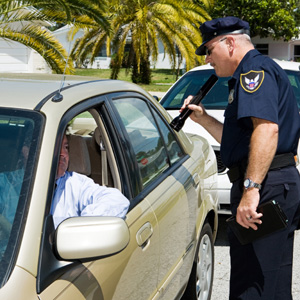 There’s often great debate about whether or not police officers are legally allowed to search your car, and if so, exactly what circumstances warrant it. While you may think you’re safe from a vehicle investigation as long as the police officer doesn’t have a warrant, the laws surrounding this issue are confusing and sometimes ambiguous. In fact, it’s not as uncommon as you might think for a police officer to search a vehicle without a warrant, as there are several exceptions and loopholes that allow officers to do so.
There’s often great debate about whether or not police officers are legally allowed to search your car, and if so, exactly what circumstances warrant it. While you may think you’re safe from a vehicle investigation as long as the police officer doesn’t have a warrant, the laws surrounding this issue are confusing and sometimes ambiguous. In fact, it’s not as uncommon as you might think for a police officer to search a vehicle without a warrant, as there are several exceptions and loopholes that allow officers to do so.



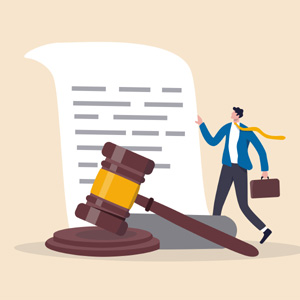





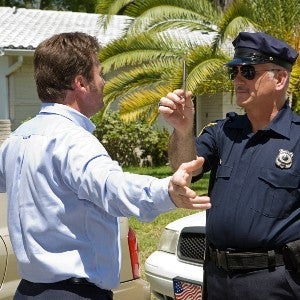


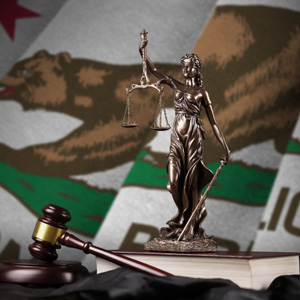

 Navigating the complexities of domestic violence charges can be an overwhelming and distressing experience for all parties involved. Whether you find yourself wrongfully accused or entangled in a misunderstanding, it’s essential to understand that the path ahead may hold various outcomes. Among these, the possibility of having charges dropped stands out as a beacon of hope for many.
Navigating the complexities of domestic violence charges can be an overwhelming and distressing experience for all parties involved. Whether you find yourself wrongfully accused or entangled in a misunderstanding, it’s essential to understand that the path ahead may hold various outcomes. Among these, the possibility of having charges dropped stands out as a beacon of hope for many.


























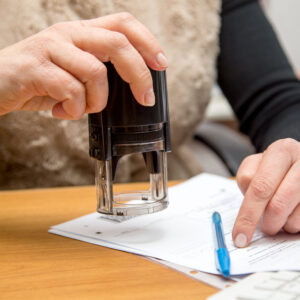








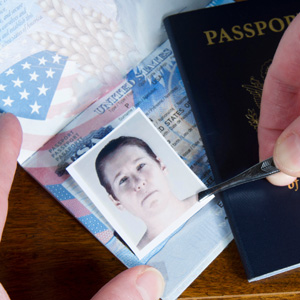

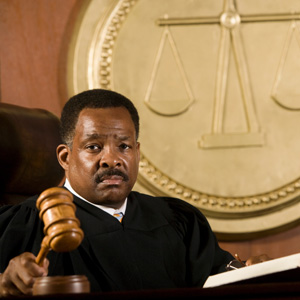
 Contrary to popular belief, in California, the prosecutors, not the victims, decide whether to file or drop a domestic violence charge.
Contrary to popular belief, in California, the prosecutors, not the victims, decide whether to file or drop a domestic violence charge.
 When kids start reaching their teenage years, they often grow curious and rebellious, and many begin testing their limits with substances like alcohol. Unfortunately, for some kids, this may mean getting behind the wheel of a car.
When kids start reaching their teenage years, they often grow curious and rebellious, and many begin testing their limits with substances like alcohol. Unfortunately, for some kids, this may mean getting behind the wheel of a car.
 When a person exposes their naked body or genitals to anyone who may be annoyed or offended by it in California, they can be charged with indecent exposure. While many people think indecent exposure can only happen publicly,
When a person exposes their naked body or genitals to anyone who may be annoyed or offended by it in California, they can be charged with indecent exposure. While many people think indecent exposure can only happen publicly,
 Submitting fraudulent insurance claims may seem like an easy way to make money, but it may be a costly mistake. If caught, you could face penalties ranging from fines and jail time to losing your license or even being charged with a felony. In California, fraud crimes are serious business, so you must understand what constitutes insurance fraud and the consequences if you are caught committing it.
Submitting fraudulent insurance claims may seem like an easy way to make money, but it may be a costly mistake. If caught, you could face penalties ranging from fines and jail time to losing your license or even being charged with a felony. In California, fraud crimes are serious business, so you must understand what constitutes insurance fraud and the consequences if you are caught committing it.
 If you have been charged with a crime and must appear in court, one of the most important issues to discuss with your lawyer is what kind of plea you plan to enter at your arraignment. Your plea is a formal response to your charges. While most people are familiar with “guilty” and “not guilty” as possible responses, there is a lesser-known type of plea, known as “nolo contendere” or “no contest.”
If you have been charged with a crime and must appear in court, one of the most important issues to discuss with your lawyer is what kind of plea you plan to enter at your arraignment. Your plea is a formal response to your charges. While most people are familiar with “guilty” and “not guilty” as possible responses, there is a lesser-known type of plea, known as “nolo contendere” or “no contest.”
 Innocent people are accused of crimes they did not commit more often than you might think.
Innocent people are accused of crimes they did not commit more often than you might think. 
 Harassment comes in many different forms, from stalking and threats to abuse and assault. In California, harassment in any form is prohibited under state law, and violators may face severe, possibly lifelong penalties.
Harassment comes in many different forms, from stalking and threats to abuse and assault. In California, harassment in any form is prohibited under state law, and violators may face severe, possibly lifelong penalties.
 Prostitution is said to be the world’s oldest profession, and it still exists to this day. Despite its illegality, it occurs daily on California streets, through phone services for call girls and escorts, and takes place in public places such as massage parlors.
Prostitution is said to be the world’s oldest profession, and it still exists to this day. Despite its illegality, it occurs daily on California streets, through phone services for call girls and escorts, and takes place in public places such as massage parlors.
 Whether you are a doctor, lawyer, nurse, or another professional that requires licensure in California, a criminal accusation could endanger your ability to make a living. The state has the power to take away your license under
Whether you are a doctor, lawyer, nurse, or another professional that requires licensure in California, a criminal accusation could endanger your ability to make a living. The state has the power to take away your license under 
 California state law prohibits anyone from driving a motor vehicle when they have a blood alcohol concentration (BAC) of .08% or higher. However, if the person is under the age of 21, they may face even harsher penalties under California’s Zero Tolerance law. Underage drivers who are caught with a BAC of just .01% in California could be charged with driving under the influence (DUI). If convicted, they may receive jail time and substantial fines.
California state law prohibits anyone from driving a motor vehicle when they have a blood alcohol concentration (BAC) of .08% or higher. However, if the person is under the age of 21, they may face even harsher penalties under California’s Zero Tolerance law. Underage drivers who are caught with a BAC of just .01% in California could be charged with driving under the influence (DUI). If convicted, they may receive jail time and substantial fines.
 The juvenile court system in California is different from the adult court and has its own unique set of rules. Posting bail is not an option in juvenile court, even though California’s juvenile system is supposed to be designed to prioritize rehabilitation over incarceration. Minors are also not entitled to a jury trial, and depending on the severity of the crime, the minor may be placed in juvenile custody or have their case transferred to adult court.
The juvenile court system in California is different from the adult court and has its own unique set of rules. Posting bail is not an option in juvenile court, even though California’s juvenile system is supposed to be designed to prioritize rehabilitation over incarceration. Minors are also not entitled to a jury trial, and depending on the severity of the crime, the minor may be placed in juvenile custody or have their case transferred to adult court.
 Any individual who puts the well-being or safety of a child in jeopardy in California could be criminally charged for a violation of
Any individual who puts the well-being or safety of a child in jeopardy in California could be criminally charged for a violation of